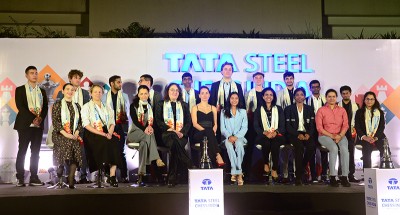
Report by Harvard expert Professor Ruggie to support development of FIFA’s human rights policies
As part of its ongoing efforts in this field, FIFA asked Ruggie to provide recommendations to embed respect for human rights across its operations and business relationships, based on his leading role in developing the UN Guiding Principles for Business and Human Rights (UNGPs). The report is now available on the Harvard Kennedy School website.
The future FIFA Human Rights Policy relating to all FIFA activities will be publicly available and document how article 3 of the FIFA Statutes is to be understood and what the organisation’s expectations vis–à-vis its stakeholders are in respect to human rights. FIFA’s aim in the medium term is, in accordance with international standards, to have in place appropriate processes to assess potential human rights risks connected to its activities coupled with mitigation or response mechanisms.
“FIFA is fully committed to respecting human rights,” said FIFA President Gianni Infantino.
“I would like to thank Prof. Ruggie for his work in producing this report, which, together with FIFA’s own analysis and ongoing work, will guide the way forward. This is an ongoing process and of course challenges remain, but FIFA is committed to playing its part in ensuring respect for human rights and to being a leader among international sports organisations in this important area.”
Through its global activities in football, FIFA is touching the lives of billions of people in a positive way through job creation, infrastructure development, capacity building and the organisation of competitions. With this global reach and impact on so many people also comes a heightened responsibility to preserve the inherent dignity and equal rights of each individual impacted by FIFA activities. Any adverse effects to their human rights should be prevented and addressed adequately.
“FIFA governs and supports a global network of over 200 national football associations and is connected through its tournaments to thousands of businesses. As for any international sports organisation today, this kind of global footprint brings with it significant risks to people’s basic dignity and welfare. And that reality demands a robust and proactive response. FIFA is not solely responsible for solving these problems where the actions of others are the primary cause. But it must use its influence to address these human rights risks as determinedly as it does to pursue its commercial interests,” said Ruggie.
“Existing global frameworks like the UNGPs as well as Prof. Ruggie’s report also help define the scope of our responsibility,” said FIFA Head of Sustainability Federico Addiechi.
“As the governing body of the most popular sport in the world, we have a responsibility in regard to human rights and in terms of how we go about developing the game of football and organising our competitions. Beyond that, FIFA is committed to using its leverage to ensure respect for human rights,” he added.
In recent months, FIFA has had constructive exchanges and meetings with Ruggie and his team to support them in conducting a review of FIFA’s policies and activities.
FIFA’s own initiative to proactively engage with Ruggie to review its policies and practices from a human rights perspective builds upon previous work initiated by FIFA to implement and integrate human rights in its activities.
The requirements for the 2026 FIFA World Cup bidding and hosting process are currently being reviewed and in this process FIFA received technical support from the United Nations Office of the High Commissioner for Human Rights (OHCHR) as well as further input from Prof. Ruggie. In addition, FIFA has recently included an additional article on human rights in the new FIFA Statutes as approved at the FIFA Extraordinary Congress on February 26, 2016.
While FIFA is working on institutionalising human rights further, the organisation will continue and reinforce the collaboration with stakeholders and the ongoing actions linked to human rights.
These include the monitoring of discrimination at all FIFA World Cup qualifying matches, the application of ethical standards on child labour, forced labour and working conditions for the FIFA quality programme, the setting-up of monitoring systems for decent working conditions at FIFA World Cup construction sites in Russia and Qatar, and a programme to promote and establish gender equality in football.
Support Our Journalism
We cannot do without you.. your contribution supports unbiased journalism
IBNS is not driven by any ism- not wokeism, not racism, not skewed secularism, not hyper right-wing or left liberal ideals, nor by any hardline religious beliefs or hyper nationalism. We want to serve you good old objective news, as they are. We do not judge or preach. We let people decide for themselves. We only try to present factual and well-sourced news.





